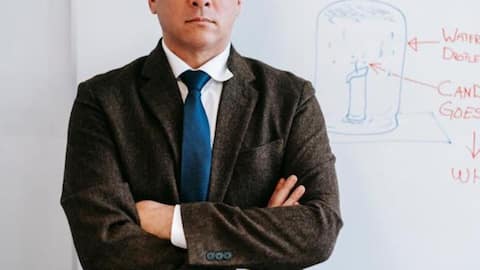Teachers' Day 2025: Educators who fought for India's independence
What's the story
Teachers have always been the torchbearers of knowledge, but during India's independence movement, some became the torchbearers of freedom as well. They were not only educators but also reformers, visionaries, and revolutionaries who inspired generations to dream of a free nation. Their classrooms extended beyond walls, shaping minds and movements that fueled India's fight for independence.
#1
Savitribai Phule: India's first female teacher
Savitribai Phule, India's first female teacher, was a revolutionary educator who challenged caste and gender barriers. Alongside her husband Jyotirao Phule, she established schools for girls and marginalized communities. Her courage against social evils inspired others to link education with empowerment. Though she passed away before independence, her pioneering efforts laid the foundation for social reform that deeply influenced India's freedom movement.
#2
Gopal Krishna Gokhale
Gopal Krishna Gokhale, a teacher and reformist, played a crucial role in shaping India's freedom struggle. As founder of the Servants of India Society, he emphasized education, civic duty, and self-governance. He guided young leaders like Mahatma Gandhi, instilling values of non-violence and social justice. His intellectual leadership and emphasis on reform through dialogue and education left a lasting mark on India's independence journey.
#3
Rabindranath Tagore
Rabindranath Tagore, Nobel laureate and educator, combined art, literature, and teaching to fuel the spirit of nationalism. Through Visva-Bharati University, he promoted holistic education that encouraged freedom of thought. Rejecting rote learning, he envisioned education as liberation. Tagore's classrooms shaped not only scholars but also freedom-loving citizens with global perspectives and Indian pride.
#4
Dr. Sarvepalli Radhakrishnan
Dr. Sarvepalli Radhakrishnan was a philosopher, teacher, and statesman whose ideas bridged ancient wisdom with modern values. As an educator, he emphasized character-building and ethical responsibility as central to India's future. While not directly leading protests, his academic influence strengthened India's intellectual backbone. Post-independence, he became the nation's second President.
